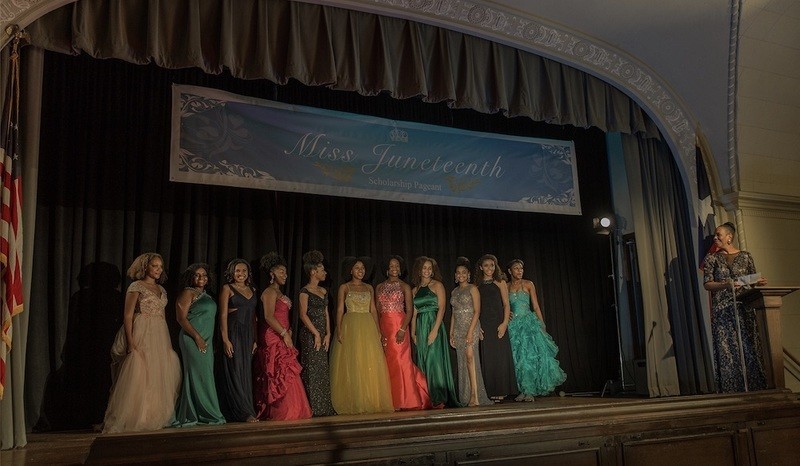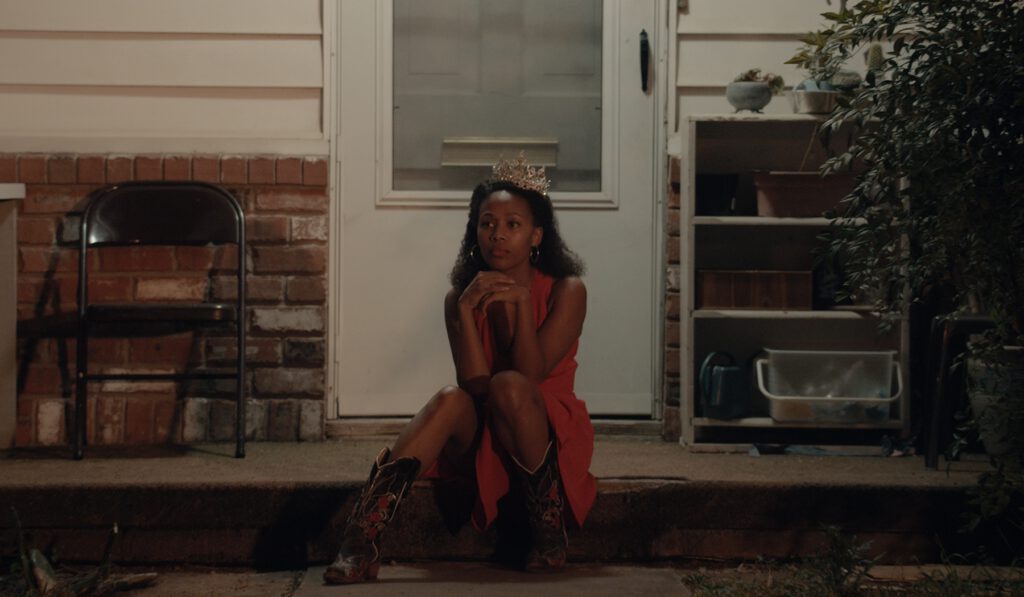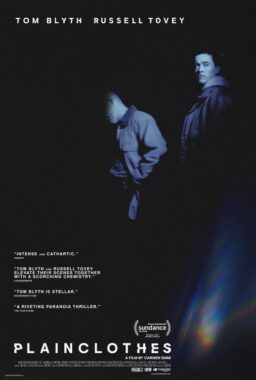Nicole Beharie plays Turquoise Jones, a former beauty queen determined to have her daughter wear the same tiara in Miss Juneteenth. Based on the real pageant held in honor of the holiday celebrating the end of slavery in the Texas town where writer/director Channing Godfrey Peoples grew up, the film has sense of place so textured we can almost smell the barbecue sauce. In an interview, Beharie talked about listening to the local performers to get the accent right, the injury she had to keep off camera, and the complicated relationships between mothers and daughters.
I loved the way the physicality of your character changed. She was more casual when she was working or talking to her daughter, but when she was around the pageant people she snapped back into that beauty queen posture.
Initially when I wanted to do the role, I thought I was going to be a glamorous former beauty queen, that whole thing. But we decided, with our director Channing’s guidance, to make her someone who knows that is such a distant part of her life. Now she’s working at a bar and she’s doing blue collar work, and she’s surrounded by a different environment of people, so she moved away from that as much as she could.
Then in the pageant world, yeah, she is trying to hold on, trying to fit back in, trying to assimilate. That definitely was a choice. Also, I sprained my ankle, like on day three of the shoot, which I actually haven’t mentioned to anyone yet in these interviews. So that actually affected my pace, and I have a little extra sway, but it’s actually just because I had a boot on as I was walking, so you may have been seeing that, to be completely honest. You think, “Oh, she’s really holding herself up well.” It’s like, no, she’s just trying to move so she doesn’t hurt her ankle.

Tell me how you and Channing first talked about the role.
Channing would say, “This story is my baby.” We can all feel the intimacy and the love of this movie, that it’s like a slice of life from her hometown in Texas. It’s about the people. It’s about this woman, it’s about this small family trying to survive and figure out what direction to move in, but it’s also about the community and how it all is interwoven.
We talked about dialect. She definitely made it clear to me that I was going to be working with locals, and most of the cast is local other than Kendrick Sampson and Alexis Chikaeze. But they are actually from Texas, so they’re familiar with the area and the dialect, and I was just like, “Okay, I’m ready for the challenge.” I think I went there two weeks in advance, and just spent time with the dialect and working at the bar, to make it as real as possible. Because it’s not necessarily an environment that I knew, and I also didn’t want to take for granted doing a general Southern accent. The character deserves that respect. So that was something that we talked a great deal about.
And just getting down there and trying to bring the whole thing alive, the way Turquoise loves her daughter and her husband. That’s what the whole thing’s about. It’s about family. It’s about a woman. It’s about the relationship even between Turquoise and her mother, which can be very complicated. Every woman, even a grown woman, a mother herself, knows you can still have a complicated relationship with your mother as an adult woman. I actually don’t see that in films too often, unless it’s a comedy and it’s like scoffing about it. That can be so painful and so difficult to navigate, and as you’re walking through motherhood yourself. So that was something that really pulled me in because I too have moments with my mom, you know? So, when I read that, I’m like: “That’s not my story, so let’s tell a different story.”
The relationship between Turquoise and her mother gave a great deal of richness to the story without giving us a lot of detail about what has happened between them and then there is Turquoise and her daughter as well. How do you, as actresses, create that sense of deep connection?
We actually filmed more as well, so there were some things that didn’t quite make it. but were a part of our relationship. They’re just two tremendous, available women. Those two actresses were just so available and excited. Also, because we were working with locals, there was a readiness to just jump in and share their lives and their culture. So, I actually feel like there was less talking about backstory than most jobs that I do, and the result is actually pretty good. We just looked into each other’s eyes like, “Okay, we’re going to do this.”
Because just on the page, the script is so deep and there’s so much history there, that you just step into it. There’s a scene in a church that gets pretty messy and complicated. We did discuss that before shooting, and there were a number of different ways that we tried it. So that’s another thing I really liked about the way that Channing was working. We would try a few things, time permitting, and then you watch the film and you’re like, “Oh, they picked that! Ok cool, well that makes sense.” So the story could be maybe four different things, and you give them a variety and see what they go with.

This movie is coming out at a time when we’re having a lot of very painful conversations about race and class and gender. What do you think this contributes to that conversation?
Well first off, it’s called Miss Juneteenth. Juneteenth is June 19th. It is a holiday that commemorates and honors June 19th, 1865, which is two years after the emancipation proclamation, where slaves in Galveston, Texas had actually not been told they were freed until then. So it was celebrating the final release of the remainder of people who were enslaved, and the fact that that community and many communities across the United States, black communities, have held that as a very dear holiday, I definitely want to get the word out on that. I do feel that we deserve acknowledging that as a major holiday, as the freedom of people who were enslaved in this country.
But also, if we are to honor it, everyone should think about what liberation means, what freedom means, what the tiny tyrannies that we inflict on others are, and to ourselves internally, and what the future can be like.
I think one of the things that Turquoise goes through in this film is a reimagining of her life. She thought one particular way: “It’s supposed to be this. I’m supposed to get this, I’m supposed to get that,” and I relate to that. I think we all have ideas about what it’s supposed to look like, but the world just shifts on us. Not just with police brutality and realizations that some people are having about injustice across the board, but coronavirus. Everything has stopped, the world just shifted on us, and I think that we have an opportunity to collectively reimagine what it could be like. What’s the possibility of humanity?
So I feel like that’s the gist here, and I’m honored by it. Who knew a year ago, when we were making this film, that it was going to be released on this day during a time like this? And I really hope also that non-people-of-color can watch a film like this, that’s not necessarily about struggle or civil rights, or anything, it’s just about people, that we’re all the same. People trying to survive, people who love their kids, people who are trying to figure out their relationships with their parents, or their man. People who go into spaces and feel like they don’t fit in. Everybody can relate to: “Maybe I’m not dressed right.” You see Turquoise trying to get herself together, and I feel like everyone can relate to those things.
What have you been watching and enjoying during the shutdown, anything special?
Yes, I actually watched “Unorthodox.” Again, a completely slice-of-life, completely different. I don’t know that world, I was like, “What is this?” And I was fascinated. It’s actually a very similar energy, because you’re just seeing someone navigate and try to figure out their way. So I loved that show. And I love cooking shows, and all things dance.
“Miss Juneteenth” is available on VOD and digital platforms today, 6/19.












